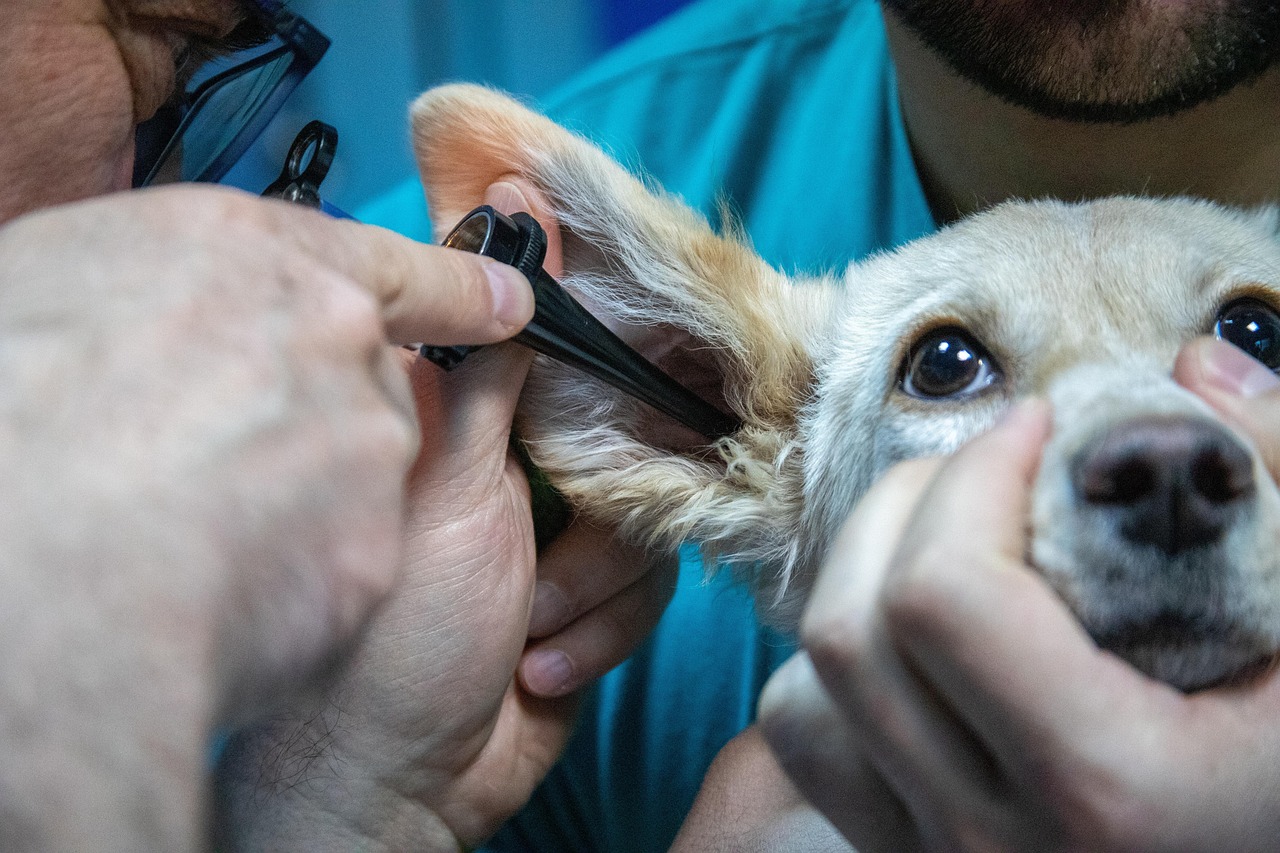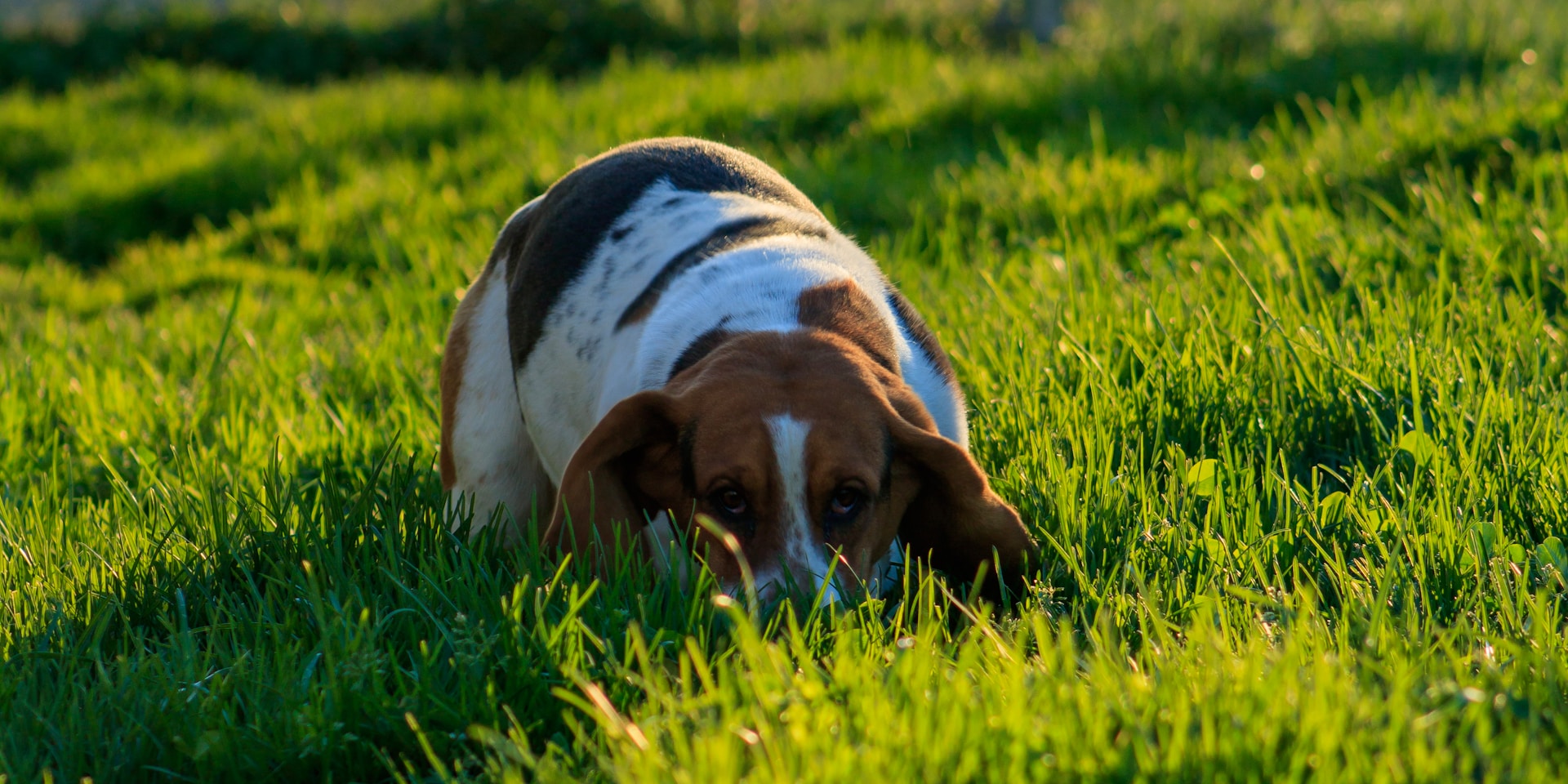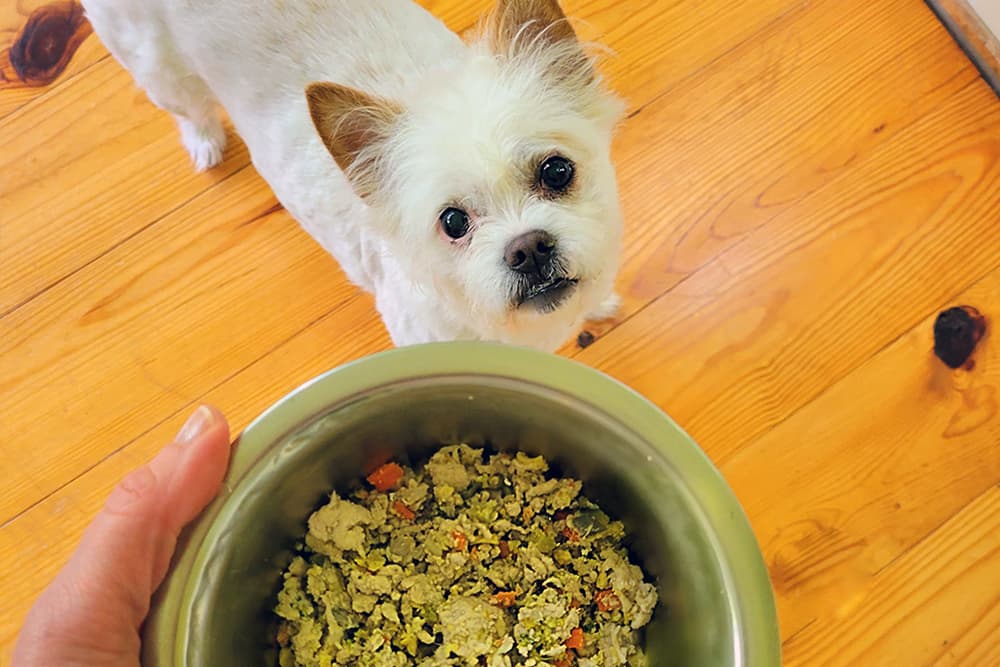Basenji
Published on June 27, 2011
Breed Details
- Height: 16 to 17 inches at the shoulder
- Weight: 22 to 24 pounds
Breed Characteristics
Adaptability
Trainability
Grooming
Apartament Friendly
Child Friendly
Shedding Level
Dog Friendly
Exercise Needs
Territorial
Barking Tendencies
Health Issues
Social Needs
Energy Level
Affectionate
Watchdog Instincts
Cat Friendly
Intelligence
Stranger Friendly
Mischievous, smart, lively and by no means silent, the “barkless” Basenji is a hilarious handful. You must have a sense of humor to live with him. He’s catlike in his cleanliness and independence, and his wrinkled forehead makes him look worried, but what he’s really thinking about is how he can rearrange your home décor.
The Basenji is a primitive or pariah-type dog who originated in as a hunting dog in Africa. He has a short, fine coat, prick ears, a forehead always wrinkled in thought and a tail that curls over his back. His behaviors are often described as catlike, and he is indeed highly curious, intelligent, and independent. Consider whether you like cats before you decide to get one. The Basenji has many excellent qualities, but he’s definitely not the right breed for everyone. Here’s what you need to know if you’re considering acquiring a Basenji.
He is not the right dog for you if you hold your possessions dear and don’t have a sense of humor. It’s not unusual for Basenji owners to swap stories about the destruction their dogs have caused. The Basenji is mischievous and energetic with a mind of his own. You had better be smarter or at least sneakier than he is if you want to stay one step ahead of him.
Always on the alert, he is an excellent watchdog. And while he might be known as the African Barkless Dog, the Basenji is by no means silent. He crows, growls, screams, chortles, and yodels to communicate. You can hear some of the sounds Basenjis make on the Basenji Club of America website. With his fun-loving nature, the Basenji can be a good choice for families with older children who can handle him appropriately.
It’s often said that a good Basenji is a tired Basenji. Plan to give him plenty of daily exercise such as a long walk on leash or an opportunity to run in a safe, traffic-free area. Dog sports that will provide physical and mental stimulation include agility, lure coursing, obedience, rally and tracking. Without plenty of activity to keep him busy, he will think up his own (potentially destructive) fun.
Confine the Basenji to a securely fenced yard. He’s fond of chasing small furry animals such as squirrels and will hunt moles, mice, rats and other vermin with enthusiasm. Don’t count on an underground electronic fence to keep him contained. He’s much too interested in having his own way for that to serve as a deterrent.
Train the smart but independent Basenji with firmness, patience and consistency. Keep training sessions short and fun, and don’t be surprised if he puts his own spin on commands or outthinks you in other ways. For best results, use positive reinforcement techniques such as praise, play, and food rewards.
The Basenji’s odorless coat is easily cared for with brushing once a week to remove dead hair. In addition, trim the nails as needed, brush the teeth, and keep the ears clean and dry to prevent infections.
The Basenji should live indoors. He’s a companion dog and will express his unhappiness in many destructive ways if relegated to the backyard with little or no human companionship.
Other Quick Facts
- The Basenji belongs to the pariah dog family, meaning that they have a primitive appearance and characteristics. Pariah-type dogs are medium size with prick ears, a wedge-shaped head and a long tail that curls over the back. The coat is usually a neutral color such as tan, brown or black, but some are patched or spotted.
- Many female Basenjis go into heat only once a year—another primitive characteristic—and most Basenji litters are born between October and December.
More on Vetstreet.com:
All featured products are chosen at the discretion of the Vetstreet editorial team and do not reflect a direct endorsement by the author. However, Vetstreet may make a small affiliate commission if you click through and make a purchase.
The History of the Basenji
This is yet another of those breeds that supposedly dates to the Pharaohs, with no evidence supporting such a claim. The breeds that are said to be depicted on the walls of ancient Egyptian tombs range from Dachshunds to Pharaoh Hounds. Dogs that superficially resembled the modern-day Basenji may certainly have existed for thousands of years, but the breed as we know it today has been around for just a little more than a century.
What is known is that Europeans found small, shorthaired hunting dogs in the remote forests of Central Africa—the Congo, as it was known then—as well as in Sudan and Zaire. Their job was to find prey and flush it so that it ran into cunningly laid nets. Edward C. Ash in his book Dogs:Their History and Development, quotes a priest, Father Jerom Merolla da Sorrento, who saw the dogs in the Congo in 1682: “These dogs, notwithstanding their wildness, do little or no damage to the inhabitants. They are red-haired, have small slender bodies and their tails turned upon their backs.”
A pair of Basenjis was brought to Britain in 1895, but the dogs died of distemper in those pre-vaccination days. More were successfully imported to Britain in 1937, but Basenjis sent to the United States that same year all died of distemper, except for one, a male named Bois. Finally, in 1941, another female, Congo, was brought in from Africa. She and Bois produced puppies, and more of the dogs were later imported from Britain and Canada. The Basenji Club of America was formed in 1942, and the American Kennel Club recognized the breed in 1943. Today the Basenji ranks 89th among the breeds registered by the AKC.
Basenji Temperament and Personality
Basenjis look so cute and endearing. And such a nice size. Who could possibly imagine that they are among the most clever, mischievous, destructive creatures on earth? A Basenji is fascinating to live with, if only to see what he’ll do next.
One description of the Basenji says that he is playful, gentle, tractable and anxious to please his owners. The first two qualities are certainly true, but the other two are somewhat questionable. The Basenji is an independent thinker who is highly intelligent, not to mention a great climber and explorer. Sure, he’d probably like to please you, but he’s really more interested in finding out what’s in the garbage, whether the grass is really greener on the other side of the fence, how that iPhone tastes—you get the picture. It takes someone with a lot of patience and a terrific sense of humor to live with a Basenji. If you are highly attached to your possessions, don’t get a Basenji.
On the plus side, the Basenji tends to be an excellent watchdog. He is highly alert, but isn’t obnoxious about barking when someone knocks at the door or another dog goes walking by the house. He may or may not welcome the burglar into your home; it all depends on his individual personality. Some Basenjis are aloof toward strangers and will growl quite threateningly at intruders, while others will silently let them plunder the house.
Speaking of silent, the Basenji is not. It’s true that he’s not much of a barker, but he will communicate with you in a chorus of yips, yodels, yowls and screams, to name just a few of the odd and sometimes loud noises he will make. You will love the crowing sound he makes when he’s happy and perhaps shudder at whatever sound he makes when he has just finished dismantling something. And yet, you will probably still find him irresistible.
The Basenji is affectionate, but he won’t shadow you. Expect him to know what you’re doing, but not to issue frequent demands for attention. He’s got his own agenda going on.
Basenjis can get along with other pets such as cats if they are raised with them, but bear in mind that they are hunting dogs. Outdoor cats, squirrels and other furry critters had better watch their backs. The Basenji won’t fetch, but he will chase. Sign him up for lure coursing and agility to make the best use of his talents.
You may have the idea that the Basenji is untrainable, and certainly training him will be an adventure, but it can be done. Be positive, be consistent, be patient, but never be harsh. It will backfire.
Start training your puppy the day you bring him home. Even at eight weeks old, he is capable of soaking up everything you can teach him. Don’t wait until he is 6 months old to begin training or you will have a more headstrong dog to deal with. If possible, get him into puppy kindergarten class by the time he is 10 to 12 weeks old, and socialize, socialize, socialize. However, be aware that many puppy training classes require certain vaccines (like kennel cough) to be up to date, and many veterinarians recommend limited exposure to other dogs and public places until puppy vaccines (including rabies, distemper and parvovirus) have been completed. In lieu of formal training, you can begin training your puppy at home and socializing him among family and friends until puppy vaccines are completed.
Invite people to your home as well so he becomes accustomed to visitors. The Basenji usually devotes himself to a single person or family, but early and frequent socialization will help him to get along well with other people, especially for important meetings such as visits to the veterinarian, visits from a pet sitter or being judged in a show ring.
Talk to the breeder, describe exactly what you’re looking for in a dog, and ask for assistance in selecting a puppy. Breeders see the puppies daily and can make uncannily accurate recommendations once they know something about your lifestyle and personality. Whatever you want from an Basenji, look for one whose parents have nice personalities and who has been well socialized from early puppyhood.
What You Need To Know About Basenji Health
All dogs have the potential to develop genetic health problems, just as all people have the potential to inherit a particular disease. Run, don’t walk, from any breeder who does not offer a health guarantee on puppies, who tells you that the breed is 100 percent healthy and has no known problems, or who tells you that her puppies are isolated from the main part of the household for health reasons.
Basenjis are generally healthy, but conditions that have been seen in the breed include Fanconi syndrome; immunoproliferative small intestinal disease, a type of inflammatory bowel disease common to Basenjis; pyruvate kinase deficiency leading to hemolytic anemia; autoimmune thyroiditis; certain eye diseases, including persistent pupillary membrane, progressive retinal atrophy (PRA) and coloboma; and umbilical hernias. The Basenji Club of America, which is the American Kennel Club parent organization for the breed in the United States, recommends that breeding dogs should be cleared by a veterinary ophthalmologist of coloboma, persistent pupillary membrane and PRA; have a recent negative test for Fanconi syndrome; be tested clear for pyruvate kinase deficiency; and have OFA certification for hips.
The BCA participates in the Canine Health Information Center Program. For a Basenji to achieve CHIC certification, he must have hip and thyroid evaluations from the Orthopedic Foundation for Animals (OFA), an eye clearance from the Canine Eye Registry Foundation and a direct gene test for Fanconi syndrome. The eye clearance must be updated annually until the dog is six years old, then every two years.
Breeders must agree to have all test results, positive or negative, published in the CHIC database. You can check CHIC’s website to see if a breeder’s dogs have these certifications.
Do not purchase a puppy from a breeder who cannot provide you with written documentation that the parents were cleared of health problems that affect the breed. Having the dogs “vet checked” is not a substitute for genetic health testing.
Careful breeders screen their breeding dogs for genetic disease and breed only the healthiest and best-looking specimens, but sometimes Mother Nature has other ideas and a puppy develops one of these diseases despite good breeding practices. Advances in veterinary medicine mean that in most cases the dogs can still live a good life. If you’re getting a puppy, ask the breeder about the ages of the dogs in her lines and what they died of.
Remember that after you’ve taken a new puppy into your home, you have the power to protect him from one of the most common health problems: obesity. Keeping a Basenji at an appropriate weight is one of the easiest ways to extend his life. Make the most of your preventive abilities to help ensure a healthier dog for life.
Veterinarians often recommend dog parents add a trusted probiotic to their Basenji’s diet. Great Poop’s 4-in-1 formula combines prebiotics, probiotics, enzymes, and fiber into one tasty chew. The chicken flavor appeals to dogs, while pet parents can rest assured that their Basenji is getting an American-made, all-in-one formula for gut health.
The Basics of Basenji Grooming
The Basenji has a short, fine, odorless coat that doesn’t shed much. It’s extremely easy to groom, one of the upsides to living with this mischievous dog. A quick brushing with a soft bristle brush, hound mitt, or rubber curry brush will remove any dead hairs and distribute skin oils to keep the coat shiny. The Basenji is also self-cleaning, grooming himself like a cat. He rarely needs a bath.
The rest is basic care. Trim the nails as needed, usually every week or two. Brush the teeth frequently for good overall health and fresh breath.
Finding a Basenji
Whether you want to go with a breeder or get your dog from a shelter or rescue, here are some things to keep in mind.
Choosing a Basenji Breeder
Finding a good breeder is the key to finding the right puppy. A good breeder will match you with the right puppy, and will without question have done all the health certifications necessary to screen out health problems as much as possible. He or she is more interested in placing pups in the right homes than making big bucks. Be wary of breeders who only tell you the good things about the breed or who promote the dogs as being “perfect for anyone” or “good with kids.”
Good breeders will welcome your questions about temperament, health clearances and what the dogs are like to live with and come right back at you with questions of their own about what you’re looking for in a dog and what kind of life you can provide for him. A good breeder can tell you about the history of the breed, explain why one puppy is considered pet quality while another is not, and discuss what health problems affect the breed and the steps she takes take to avoid those problems. A breeder should want to be a resource for you throughout your dog’s life.
Look for more information about the Basenji and start your search for a good breeder at the website of the Basenji Club of America. Choose a breeder who has agreed to abide by the BCA’s code of recommended practices, which prohibits the sale of puppies to or through pet stores and calls for the breeder to obtain certain health clearances on dogs before breeding them.
Avoid breeders who only seem interested in how quickly they can unload a puppy on you and whether your credit card will go through. Breeders who offer puppies at one price “with papers” and at a lower price “without papers” are unethical. You should also bear in mind that buying a puppy from websites that offer to ship your dog to you immediately can be a risky venture, as it leaves you no recourse if what you get isn’t exactly what you expected. Put at least as much effort into researching your puppy as you would into choosing a new car or expensive appliance. It will save you money in the long run.
Lots of reputable breeders have websites, so how can you tell who’s good and who’s not? Red flags include puppies always being available, multiple litters on the premises, having your choice of any puppy, and the ability to pay online with a credit card. Those things are convenient, but they are almost never associated with reputable breeders.
Whether you’re planning to get your new best friend from a breeder, a pet store, or another source, don’t forget that old adage “let the buyer beware”. Disreputable breeders and facilities that deal with puppy mills can be hard to distinguish from reliable operations. There’s no 100% guaranteed way to make sure you’ll never purchase a sick puppy, but researching the breed (so you know what to expect), checking out the facility (to identify unhealthy conditions or sick animals), and asking the right questions can reduce the chances of heading into a disastrous situation. And don’t forget to ask your veterinarian, who can often refer you to a reputable breeder, breed rescue organization, or other reliable source for healthy puppies.
The cost of an Basenji puppy varies depending on the breeder’s locale, whether the pup is male or female, what titles his parents have, and whether he is best suited for the show ring or a pet home. The puppy you buy should have been raised in a clean home environment, from parents with health clearances and conformation (show) and, ideally, working or activity titles to prove that they are good specimens of the breed. Puppies should be temperament tested, vetted, dewormed, and socialized to give them a healthy, confident start in life.
Before you decide to buy a puppy, consider whether an adult Basenji might better suit your needs and lifestyle. Puppies are loads of fun, but they require a lot of time and effort before they grow up to become the dog of your dreams. An adult may already have some training and will probably be less active, destructive and demanding than a puppy.
With an adult, you know more about what you’re getting in terms of personality and health and you can find adults through breeders or shelters. If you are interested in acquiring an older dog through breeders, ask them about purchasing a retired show dog or if they know of an adult dog who needs a new home. If you want to adopt a dog, read the advice below on how to do that.
Adopting a Dog from Basenji Rescue or a Shelter
There are many great options available if you want to adopt a dog from an animal shelter or breed rescue organization. Here is how to get started.
1. Use the Web
Sites like Petfinder.com and Adopt-a-Pet.com can have you searching for a Basenji in your area in no time flat. The site allows you to be very specific in your requests (housetraining status, for example) or very general (all the Basenjis available on Petfinder across the country). AnimalShelter can help you find animal rescue groups in your area. Also some local newspapers have “pets looking for homes” sections you can review.
Social media is another great way to find a dog. Post on your Facebook page that you are looking for a specific breed so that your entire community can be your eyes and ears.
2. Reach Out to Local Experts
Start talking with all the pet pros in your area about your desire for a Basenji. That includes vets, dog walkers, and groomers. When someone has to make the tough decision to give up a dog, that person will often ask her own trusted network for recommendations.
3. Talk to Breed Rescue
Most people who love Basenjis love all Basenjis. That’s why breed clubs have rescue organizations devoted to taking care of homeless dogs. The Basenji Club of America’s Rescue Network can help you find a dog that may be the perfect companion for your family. You can also search online for other Basenji rescues in your area.
The great thing about breed rescue groups is that they tend to be very upfront about any health conditions the dogs may have and are a valuable resource for advice. They also often offer fostering opportunities so, with training, you could bring a Basenji home with you to see what the experience is like.
4. Key Questions to Ask
You now know the things to discuss with a breeder, but there are also questions you should discuss with shelter or rescue group staff or volunteers before you bring home a pup. These include:
What is his energy level?
How is he around other animals?
How does he respond to shelter workers, visitors and children?
What is his personality like?
What is his age?
Is he housetrained?
Has he ever bitten or hurt anyone that they know of?
Are there any known health issues?
Wherever you acquire your Basenji, make sure you have a good contract with the seller, shelter, or rescue group that spells out responsibilities on both sides. Petfinder offers an Adopters Bill of Rights that helps you understand what you can consider normal and appropriate when you get a dog from a shelter. In states with “puppy lemon laws,” be sure you and the person you get the dog from both understand your rights and recourses.
Puppy or adult, a breeder purchase or a rescue, take your Basenji to your veterinarian soon after adoption. Your veterinarian will be able to spot problems and will work with you to set up a preventive regimen that will help you avoid many health issues.











